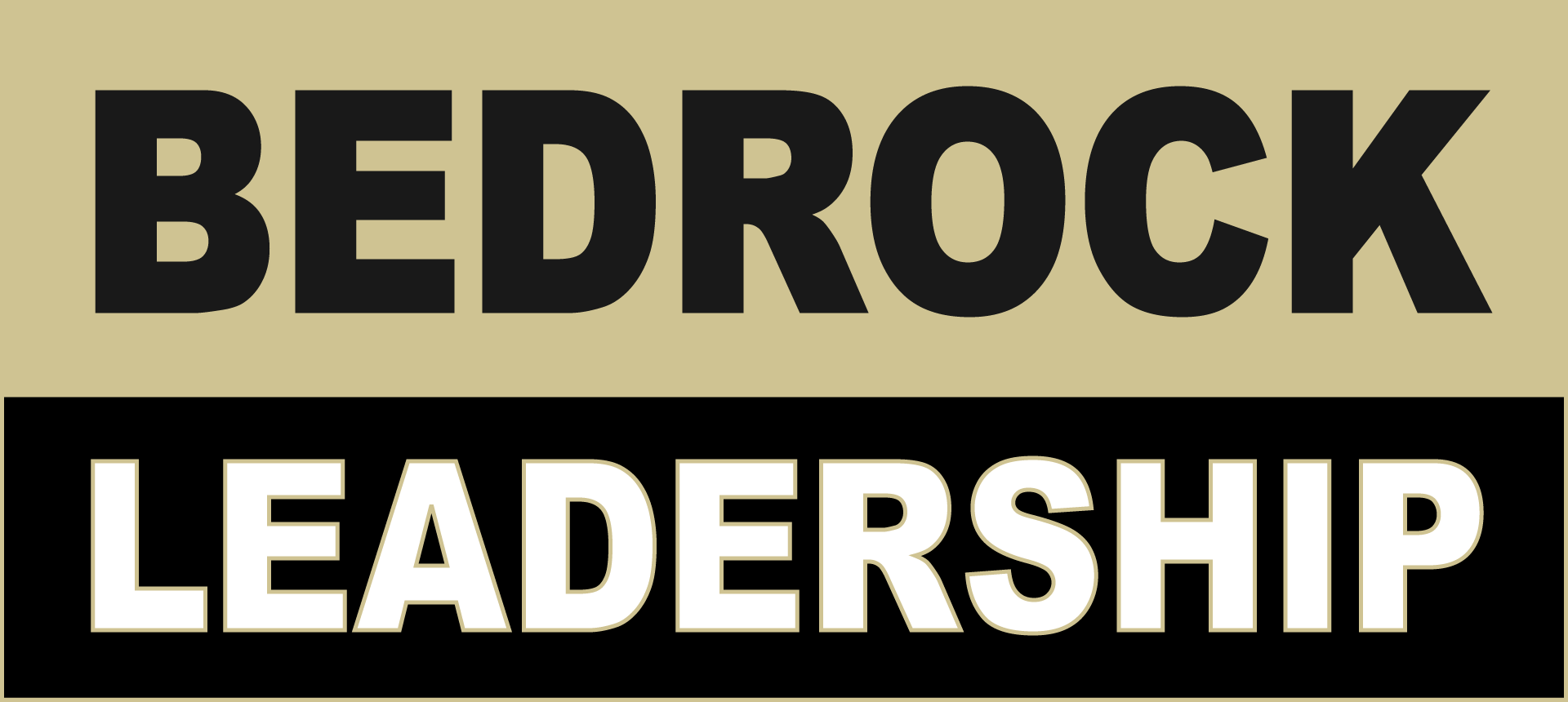Honoring Labor
How Bedrock Leaders Can Elevate the Workforce
The first Labor Day was organized by the Central Labor Union of New York City on September 5, 1882. By 1885, it had spread to many industrial areas in the United States. It became a national holiday in 1894 when President Grover Cleveland signed it into law. The decision to establish the holiday at the federal level was influenced by the desire to honor hard-working Americans, ease tensions between management and organized labor, and acknowledge the growing power of labor unions that politicians needed to court.
The Bedrock Leader’s Role
Bedrock Leaders possess a unique combination of mindsets and skill sets that make them particularly well-suited to support and uplift the working man and woman. Bedrock Leadership is rooted in the Cardinal Virtues: prudence, justice, fortitude, and temperance, all driven by a deep love for humanity. This foundation enables Bedrock Leaders to approach leadership with a focus on fairness, integrity, and a genuine desire to see all workers flourish. It is also a healthy, sustainable path to building a thriving organization.
Bedrock Leaders apply prudence to their decision-making, ensuring that they address the needs of workers in a balanced and thoughtful way. They understand the challenges faced by both blue-collar and white-collar workers and are adept at finding solutions that address these challenges without compromising the organization’s purpose.
Prudence is the cornerstone of a Bedrock Leader’s life, guiding their actions and decisions at every level. However, prudence would be incomplete without giving adequate weight to justice. Bedrock Leaders are committed to paying fair wages, ensuring safe working conditions, and providing equal opportunities for advancement. They create environments where everyone feels valued, respected, and equipped to contribute to their fullest potential, regardless of their role. This commitment to justice extends beyond surface-level fairness; it is about recognizing and honoring the intrinsic worth of each person, fostering a culture where dignity and equality are the foundation of all interactions and organizational practices. Through their unwavering dedication to justice, Bedrock Leaders uphold ethical standards that inspire trust, loyalty, and a shared sense of purpose among their teams.
Leaders face adversity from every direction. Bedrock Leaders possess a level of fortitude that allows them to remain steadfast in treating labor justly and resisting forces that would elevate other concerns above the well-being of workers. The combination of love for humanity and fortitude drives the Bedrock Leader to make work as meaningful and profitable as possible for all workers.
Bedrock Leaders practice temperance. They understand the importance of balance—whether it’s between work and life, ambition and humility, or short-term gains and long-term well-being. This balanced approach ensures that decisions are made with the well-being of workers in mind, fostering an environment where both the individual and the organization can flourish.
Rooted in their love for humanity, Bedrock Leaders are empathetic and compassionate, understanding that every worker’s contribution is vital to the success of the whole. They listen to the concerns of their workers, support their growth, and create a culture of care that extends beyond the workplace.
By integrating these mindsets and skills, Bedrock Leaders are uniquely equipped to support the working man and woman, ensuring that their contributions are recognized, their needs are met, and their potential is fully realized. In doing so, they improve the lives of individual workers and strengthen the fabric of their organizations and society as a whole.
Seeing the Unique Individual
Emphasis on Human Essence Over External Labels
Bedrock Leaders go beyond external labels and superficial categories. They see each person as complex and multifaceted, defined not by their appearance or demographic profile but by their unique temperament, talents, values, and interests. This deeper understanding allows Bedrock Leaders to connect with their team members more meaningfully, fostering genuine relationships based on mutual respect and appreciation.
Focus on Individual Strengths and Contributions
Rather than ticking boxes or adhering to quotas, Bedrock Leaders focus on what each person can contribute to solving problems. They recognize that true diversity lies below the surface, in the variety of experiences, viewpoints, and strengths that individuals bring to the table. By valuing these intangible qualities, Bedrock Leaders create environments where everyone can contribute in their most potent and productive way.
Commitment to Learning
For a Bedrock Leader, learning is not about meeting predefined criteria; it’s about creating an atmosphere where people feel safe experimenting and exploring new ways. They foster a culture where it’s safe to laugh at how many ideas turn out to be impractical, understanding that even a seemingly awful idea can spark a tidal wave of new thoughts and learning that lead to great solutions. This approach encourages people to express their whole selves, knowing that their voices are integral to decision-making and innovation.
Summary
Bedrock Leaders stand on the first principles of prudence, justice, fortitude, and temperance, all driven by their love for humanity. These virtues guide them to see beyond the surface and lead with a sense of fairness rooted in recognizing each person’s inherent worth and dignity. They are not swayed by trends or appearances but are driven by a deep commitment to uplifting the human spirit in all its forms, leading their organizations to new heights.
By operating on this more profound level, Bedrock Leaders ensure that their leadership is not merely performative or compliance-driven but genuinely transformative. They cultivate a culture that values people for who they are, not just how they fit into a category, leading to a more authentic, well equipped, and cohesive workforce.
